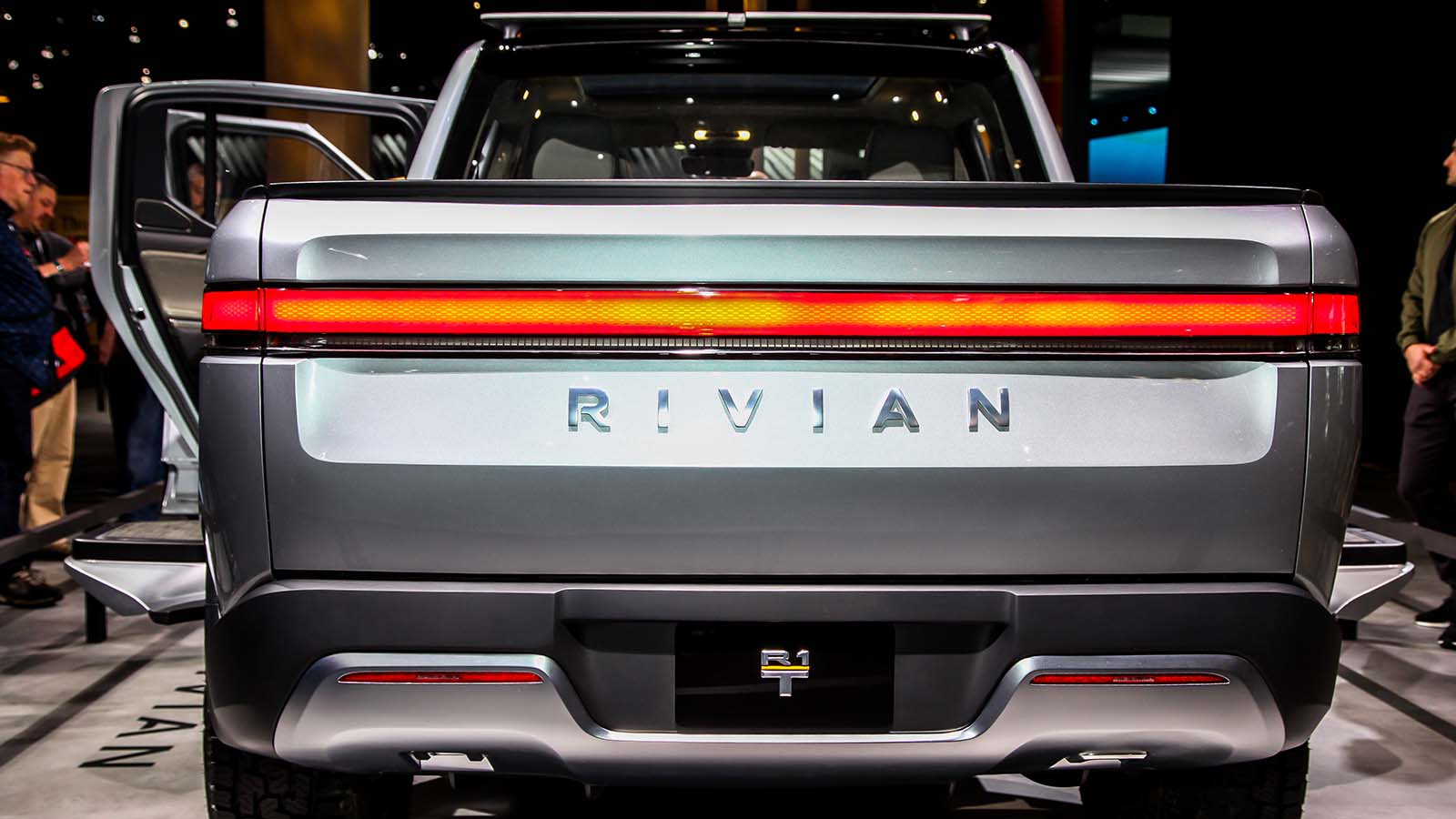Electric vehicle (EV) manufacturer Rivian Automotive (NASDAQ:RIVN) entered the market full of hope and anticipation. Fundamentally, the company benefited from a gorgeous baseline chassis from which Rivian made an EV pickup truck and SUV. These served as a wonderful contrast to Tesla (NASDAQ:TSLA) and its increasingly dull and predictable aesthetics. However, that hasn’t been enough to exempt Rivian stock from broader EV sector woes.
First and foremost, even the best EV companies are struggling lately. Notably, Tesla initiated a price war that has taken down pure-play contenders — including Tesla itself. TSLA stock has suffered a 30% decline since the beginning of January. Meanwhile, RIVN stock has dropped more than 48% year-to-date (YTD).
Second, the EV space is currently suffering from wider economic challenges that have hurt consumers, particularly inflation. Along with rising prices, society is having to contend with high borrowing costs. Subsequently, EV inventories have hit a record high, per a December Bloomberg article. If demand was truly robust, you probably wouldn’t see supply swing up like this.
Finally, the market simply doesn’t seem to believe in Rivian stock. It trades at a very modest premium to book value, which might not be a discount. Instead, it could be a value trap, as it indicates that RIVN stock is not worth much more than the sum of its parts. Regrettably, then, I am bearish on the EV maker until wider circumstances improve.
An Economic Reality Haunts the EV Space
As much as EVs were meant to usher in a new paradigm of mobility, the space has run into a major hiccup: People can’t afford them. More to the point, the folks that could afford them have already made the transition. Everyone else is sticking with traditional internal combustion engine (ICE) vehicles.
At their core, EVs are still too expensive, with the average cost of one running over $53,000 as of September 2023. Of course, the counter-argument is that, over time, EVs should be the better financial solution. Thanks to far fewer moving parts, electric vehicles don’t require the same maintenance costs as their ICE counterparts.
However, we need to be real: Consumers have struggled for years now with high inflation and high interest rates. The upfront cost is exactly what Americans are most frustrated about. And I’m sure the “average Joe” doesn’t want to be lectured about forward costs and what not.
Don’t believe me? Look at President Joe Biden’s approval rating. If upfront (current) costs rise any higher, Biden could even lose his reelection bid. It’s just that simple. Poor EV demand reflects this dynamic.
Another element to consider here is that not everyone has a garage or carport, eliminating for many the home-charging avenue. Frankly, this metric might not improve anytime soon due to skyrocketing prices impacting the real estate sector. So, the middle-income crowd may continue to use the familiar ICE platform.
Finally, in a huge blow to Rivian stock and the wider EV ecosystem, hybrid vehicles have garnered intense support. For example, Toyota (NYSE:TM) is making a killing with its hybrids. The company is giving customers what they want.
Rivian Stock Is Trading for a Pittance Above Its Asset Value
Currently, Rivian stock trades at 1.12x tangible book value. On paper, that’s a good deal. According to Gurufocus, the median ratio for the vehicles and parts industry stands at 1.72x. That means that RIVN stock trades below 64.44% of its peers.
However, investors need to consider what the market is telling us. Basically, Wall Street is saying that if you stack up all of Rivian’s tangible assets, Rivian stock trades at a 12% premium to this sum. Out of context, some may view that as a bargain. But what it might actually be saying is that the Rivian brand — being only 12% above the sum of its parts — is a value trap.
On the other side of the equation is Tesla. Right now, it trades at nearly 9x tangible book value. Stated differently, the Tesla brand is worth over 800% atop the sum of its parts. But the real winner here in this comparison is Ferrari (NYSE:RACE). Trading at over 84x tangible book value, its enormous premium states that people adore the brand.
Is Ferrari overvalued? It might look that way on paper. However, shares of RACE are also up 28% year-to-date (YTD). That performance is the inverse of TSLA stock.
Looking ahead, Rivian risks competition from Tesla, where its customers clearly appreciate the brand. But it also faces forward competition from the likes of General Motors (NYSE:GM). GM trades at only 0.92x tangible book value, but the company is a mass-production powerhouse. So, it should be able to play the volume game far better than Rivian.
RIVN Is Caught in Unfortunate Circumstances
Although Rivian presents an exciting alternative for the EV ecosystem, it’s also encountering significant fundamental challenges. Primarily, economic headwinds impose obstacles for not only Rivian stock but all other pure-play EV investments. Moreover, the company faces a brand monster in the form of Tesla and a scale monster in General Motors and other legacy automakers.
Until these conditions change, it’s difficult to have much confidence in this upstart EV manufacturer.
On the date of publication, Josh Enomoto did not hold (either directly or indirectly) any positions in the securities mentioned in this article. The opinions expressed in this article are those of the writer, subject to the InvestorPlace.com Publishing Guidelines.
